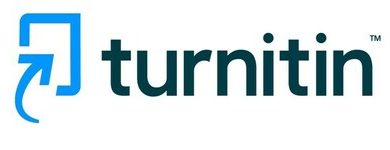- Private label brand sales accounted for 25% of top 100 ranked brand sales
- Proprietary direct-to-consumer model thrives amid shifting landscape
- Global demand for premium products persists
LONDON–(BUSINESS WIRE)–#FMCG–The e-commerce landscape is becoming increasingly dominated by a select group of top-performing brands, with Euromonitor International’s latest research revealing that 100 brands now account for 21% of total FMCG e-commerce value.
According to Euromonitor’s Top 100 FMCG Brands in E-commerce report, nearly a third of all ranked brands surpassed USD one billion in annual online sales across 12 FMCG categories and 15 major markets.
These billion-dollar brands are evolving to offer convenient and personalised experiences, with predictive customer journey mapping to strengthen their brand equity, while strategically operating across multiple digital touchpoints.
Citing the latest findings from Euromonitor International’s Passport knowledge hub, Rabia Yasmeen, global insight manager for e-commerce at Euromonitor International, said “Leading e-commerce brands distinguish themselves not just through visibility but by transforming their digital presence into brand equity by owning a distinctive, category-relevant identity online to build lasting customer relationships and brand preference.”
Private labels reign supreme as consumers prioritise value perception
The top 100 e-commerce brand ranking showed a significant shift in the competitive landscape as 19 retailer-led private label brands made the list, collectively accounting for 25% of ranked brand sales.
Private label brands have soared in popularity by eliminating traditional markups and maintaining quality parity, while evolving their image from a budget alternative to premium quality competitor.
Top ranked private label brands like Great Value and Tesco are leveraging omnichannel strategies to maximise their e-commerce sales. Both brands also benefit from their parent company’s scale and expansive retail ecosystem, culminating in strong visibility across key online retailers.
Rise of the direct-to-consumer disruptors
Companies taking the direct-to-consumer route are thriving, with brands like Nespresso and Factor ranking among the top ten on the list.
These brands offer consumers convenience and customisation using strategies such as flexible subscription models and exclusive benefits to drive customer retention. Additionally, this approach fuels higher revenue velocity than other lower-frequency FMCG categories.
Premium proposition: the enduring appeal of specialty products
While many consumers prioritise value for money online, others remain willing to pay more for high-quality or specialised products. Brands are benefitting from continued demand for premiumisation within the industry.
Purina’s flagship premium pet food brand Pro Plan ranked ninth, accelerating Nestle’s online growth through effective e-commerce strategies and product innovation that emphasise pet needs and health. Despite an exclusively domestic customer base, China’s premium baijiu brand Wu Liang Ye ranked tenth overall, propelled by strict distribution and price management through key marketplaces.
Private label brands are also pivoting their product and perception to enter the premium quality category. M&S, Member’s Mark and Kirkland Signature already operate in the premium space, offering value, bulk purchase options and quality to drive online growth.
Contacts
Euromonitor Press Office
[email protected]



